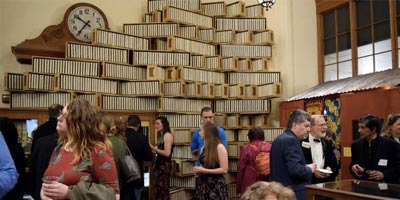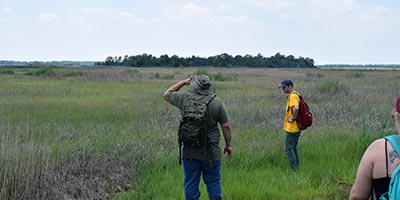Study Abroad, Field School, & Research
Anthropology Program Resources
Research/Fieldwork Opportunities
Anthropology Teaching and Research Laboratory
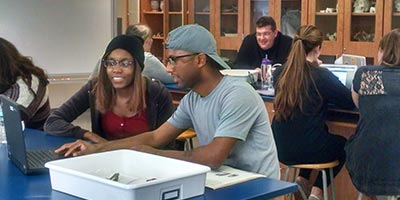 The WCU Anthropology program has a fully functional laboratory facility for teaching
archaeology and biological anthropology courses, supporting faculty and student research
projects, processing field specimens, and conducting artifact specimen and collections
management. The laboratory is equipped with wet lab capabilities, PC and MAC computer
stations, Leica projecting stereo and light microscopes, Leica binocular light and
stereomicroscopes for student use, computer USB microscopes, artifact reference collections,
two portable flotation tanks, fossil hominin casts, human and non-human primate skeletal
casts, anthropometric equipment, and instruments used to study molecular variation.
The WCU Anthropology program has a fully functional laboratory facility for teaching
archaeology and biological anthropology courses, supporting faculty and student research
projects, processing field specimens, and conducting artifact specimen and collections
management. The laboratory is equipped with wet lab capabilities, PC and MAC computer
stations, Leica projecting stereo and light microscopes, Leica binocular light and
stereomicroscopes for student use, computer USB microscopes, artifact reference collections,
two portable flotation tanks, fossil hominin casts, human and non-human primate skeletal
casts, anthropometric equipment, and instruments used to study molecular variation.
Food and Sustainable Heritage Ethnographic Field School
 In partnership with the Umbra Institute, this field school examines the ways in which
sustainable food systems act as markers of cultural identity in central Italy. Interdisciplinary
in nature, this progarm also collaborates with nutrition professors for a holistic
understanding of the role of food in Italian society. Located in the beautiful, historic
city of Perugia, students learn qualitative, ethnographic methods while observing,
talking with, and even interning with organic local producers at markets, agritourism
sites, and vineyards in the surrounding Umbrian countryside. Students also enjoy hands-on
cooking lessons, gelato-making, cheese-making and bread-making workshops. For more
information, see the webpage (www.umbra.org/wcu) or contact Dr. Di Giovine.
In partnership with the Umbra Institute, this field school examines the ways in which
sustainable food systems act as markers of cultural identity in central Italy. Interdisciplinary
in nature, this progarm also collaborates with nutrition professors for a holistic
understanding of the role of food in Italian society. Located in the beautiful, historic
city of Perugia, students learn qualitative, ethnographic methods while observing,
talking with, and even interning with organic local producers at markets, agritourism
sites, and vineyards in the surrounding Umbrian countryside. Students also enjoy hands-on
cooking lessons, gelato-making, cheese-making and bread-making workshops. For more
information, see the webpage (www.umbra.org/wcu) or contact Dr. Di Giovine.
Biological Anthropology
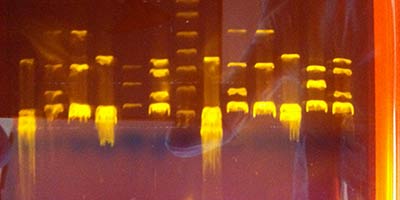 Students study human biological variation, evolutionary theory and genetics. The major
areas of study within this subfield include primatology (non-human primate studies),
paleoanthropology (the fossil and genetic record of human evolution), and human biology
(the biological variation among living human populations, including physical variation,
health, nutrition, reproduction, child growth and development, among other characteristics)
Students study human biological variation, evolutionary theory and genetics. The major
areas of study within this subfield include primatology (non-human primate studies),
paleoanthropology (the fossil and genetic record of human evolution), and human biology
(the biological variation among living human populations, including physical variation,
health, nutrition, reproduction, child growth and development, among other characteristics)
Research in Latin America
How do large groups of people and entire communities develop a common understanding of their social situation and articulate this understanding through action in strikes, riots, uprisings, or cultural and social movements? Students interested in these questions have recently had the opportunity to travel and participate in faculty research exploring local histories and twentieth century patterns of collective, social action in an industrial city in Colombia. As the project expands, students will continue to have opportunities to engage in field research activities in Colombia, including archival research, and conducting interviews and collecting life histories. For more information contact Dr. Arredondo.
Gishwati Primate Project
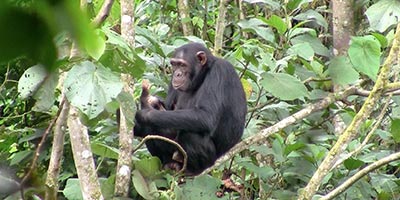 In conjunction with the WCU Department of Psychology, the anthropology program hosts
a primatology field school at West Chester University’s own field station in Gishwati
National Park, Rwanda. Students come face-to-face with non-human primates as they
aid faculty in their study of chimpanzees and golden monkeys. They also travel to
a nearby national park that is home to mountain gorillas and tour Rwanda, learning
about its rich culture and difficult past. Tourism, heritage and museum students can
also participate in a long-term research project with primatologists and cultural
anthropologists examining the biological and psychological impact of visitors on great
apes in the park. Students may also engage in primate studies more locally at the
Philadelphia Zoo. For more information, contact Dr. Chancellor.
In conjunction with the WCU Department of Psychology, the anthropology program hosts
a primatology field school at West Chester University’s own field station in Gishwati
National Park, Rwanda. Students come face-to-face with non-human primates as they
aid faculty in their study of chimpanzees and golden monkeys. They also travel to
a nearby national park that is home to mountain gorillas and tour Rwanda, learning
about its rich culture and difficult past. Tourism, heritage and museum students can
also participate in a long-term research project with primatologists and cultural
anthropologists examining the biological and psychological impact of visitors on great
apes in the park. Students may also engage in primate studies more locally at the
Philadelphia Zoo. For more information, contact Dr. Chancellor.
Archaeology Field School
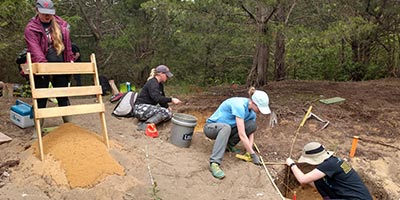 Students may learn how to do archaeology by joining a vibrant faculty-lead student
research team that works on real archaeological projects throughout the Middle Atlantic
region. Students participate in all aspects of field research while taking a practical
and multi-disciplinary approach to studying the human and environmental past. Current
and on-going research focuses on eastern Native American heritage and climate change
impacts to heritage sites and stakeholder communities. Projects are often conducted
in cooperation with regional heritage and preservation organizations, thus also exposing
students to applied elements of research. For more information contact Dr. Wholey.
Students may learn how to do archaeology by joining a vibrant faculty-lead student
research team that works on real archaeological projects throughout the Middle Atlantic
region. Students participate in all aspects of field research while taking a practical
and multi-disciplinary approach to studying the human and environmental past. Current
and on-going research focuses on eastern Native American heritage and climate change
impacts to heritage sites and stakeholder communities. Projects are often conducted
in cooperation with regional heritage and preservation organizations, thus also exposing
students to applied elements of research. For more information contact Dr. Wholey.


